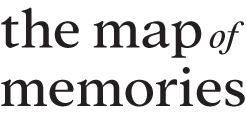About research
Utilizing a map enriched with visuals from long-term collaborative ethnography with Turkish university students aged 18 to 23, who inhabit social media not as outsiders but as natives of its realm—this research extends beyond mere analysis of governance frameworks or the influence of technology on our collective memories. It engages in a nuanced exploration of how people employ complex ways and subtle maneuvers to forge connections in online and offline spaces in order to maintain safety and authenticity in social and political contexts where trust and accuracy are compromised. This study also examines how these connections are intertwined with remembering and forgetting, shedding light on the broader implications for collective memory formation and disruption.
Rather than strictly categorizing social structures, technology, and the various actors who shape or challenge collective narratives, this research explores the complexities of collective memory in the digital age through the lenses of proximity, relationships, and transitions within these categories. It addresses a multifaceted set of questions related to security, home, family, love, success, violence, power, and responsibility, aiming to understand not just the formation of memory but to trace its underlying patterns and connections.
With four years of research using collaborative ethnographic methodology—which includes participants as collaborators making their own autoethnography as part of my doctoral studies—this research focuses on social media as a public space and ethnographic mapping as a methodological technique for exploring the relationship between memory and social media.



